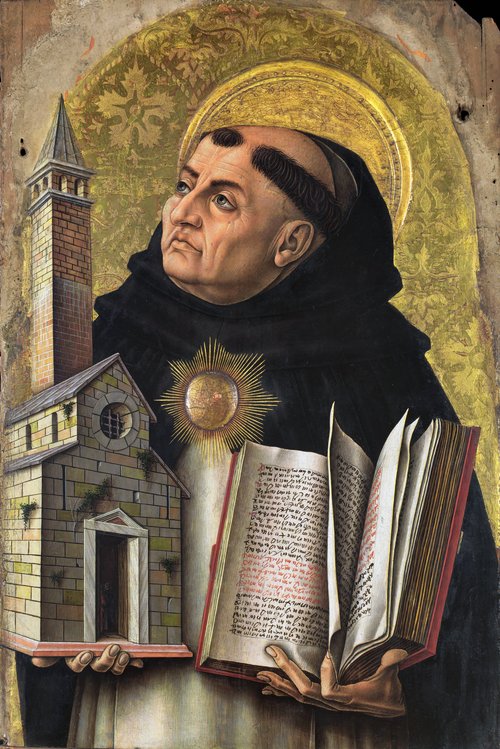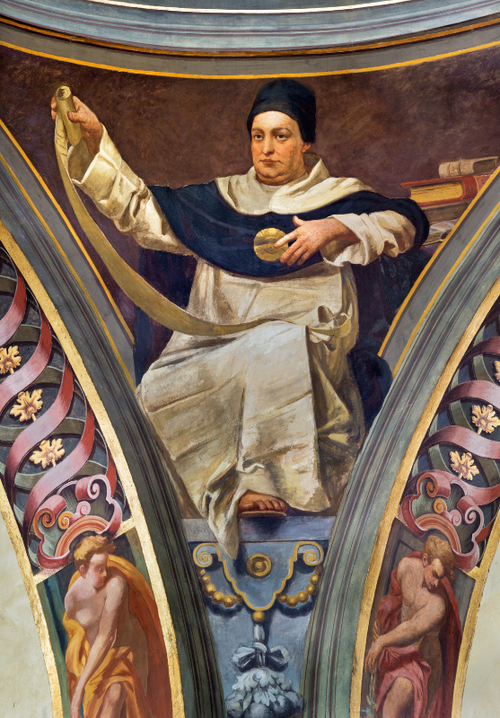A Reflection on the Life of St Thomas Aquinas
Diocesan Director of Ministry, the Reverend Canon Tim Jones reflects on the life of St Thomas Aquinas on the 750th anniversary of his death.
Thursday 7th March marks the 750th anniversary of the death of St Thomas Aquinas in 1274. Never a handsome man, and very overweight – his fellow scholars called him the “Dumb Ox” – Thomas was one of the most influential theologians and philosophers of Christian history.

He was probably born around 1227, the son of noble Italian parents, and from the age of five was raised in the Benedictine mountain-top monastery of Monte Cassino. In his early teens he began studies at the University of Naples, and at age 17 applied to join the Dominican Order.
His parents were horrified and intervened, arranging for his kidnap and subsequent imprisonment for the next two years. The Dominicans, aware of Thomas’ genius, successfully petitioned the Pope and the Holy Roman Emperor to order Thomas’ release.
Over the next quarter of a century, Thomas produced a remarkable volume of work, some eight million words, changing the nature of academic study in the Western world, and the subsequent shape of theology and philosophy.
From a Christian perspective he grappled with the insights of the ancient philosophers, especially Aristotle, and produced something vibrant and fresh, earning a new nickname: the “Angelic Doctor”!
His careful system of theology was adopted by the Roman Catholic Church, which saw his work as the pinnacle of the Christian theological endeavour.
The influence of “Thomism” or “scholasticism” has been immense, and all subsequent theological debate has had to reckon with it one way or another, whether in favour or opposition.
Over the last century, the importance of Thomas for theology and philosophy has been renewed in the work of major scholars such as Jacques Maritain, Elizabeth Anscombe and Alasdair MacIntyre.

So much of Thomas’ insight continues to resonate with modern issues. In celebration of the life and teaching of St Thomas Aquinas, I invite you to spend a little while chewing on these snippets of his wisdom:
“Not everything that is more difficult is more meritorious.”
“To one who has faith, no explanation is necessary. To one without faith, no explanation is possible.”
“Someone who is not angry when there is just cause for anger is immoral. Why? Because anger looks to the good of justice. And if you can live amid injustice without anger, you are immoral as well as unjust.”
“One cannot use an evil action with reference to a good intention.”
“To bear with patience wrongs done to oneself is a mark of perfection, but to bear with patience wrongs done to someone else is a mark of imperfection and even of actual sin.”
“One who achieves power by violence does not truly become lord or master.”
“One aspect of neighbourly love is that we must not merely will our neighbours good but actually work to bring it about.”
“Charity brings to life again those who are spiritually dead.”
“We must love them both, those whose opinions we share and those whose opinions we reject, for both have laboured in the search for truth, and both have helped us in finding it.”
“God has no need for our worship. It is we who need to show our gratitude for what we have received.”
“God destines us for a purpose beyond the grasp of reason.”
“There is within every soul a thirst for happiness and meaning.”
“Wonder is the desire of knowledge.”
“Love takes up where knowledge leaves off.”
“The things we love tell us who we are.”
A Prayer of St Thomas Aquinas:
“Grant me, O Lord my God, a mind to know you, a heart to seek you, wisdom to find you, conduct pleasing to you, faithful perseverance in waiting for you, and a hope of finally embracing you. Amen.”